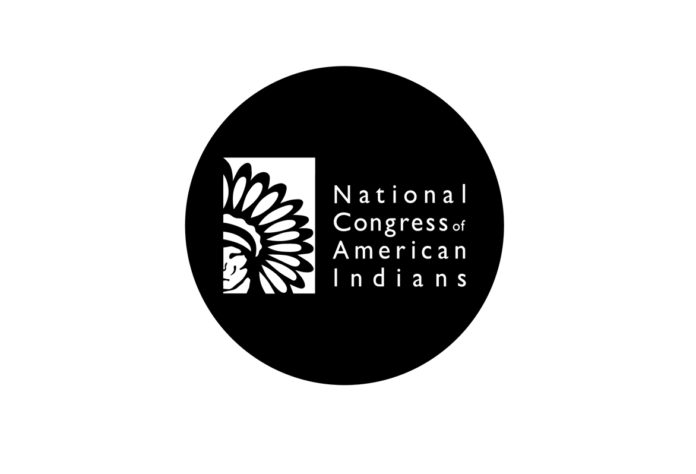WASHINGTON, D.C. – The National Congress of the American Indians (NCAI) has released the following summary of the U.S. Senate passed H.R. 3684: The Infrastructure Investment and Jobs Act.
The $1.2 trillion bi-partisan infrastructure package includes $550 billion in new federal spending and an additional $650 billion in spending over five years. Tribal Nations and NCAI have long called for a comprehensive and transformational investment in infrastructure in Indian Country. For decades, chronic underinvestment and an ever-growing backlog of critical infrastructure projects has negatively impacted the social, physical, and mental well-being of tribal and neighboring communities, hampering the ability of Tribal Nations to fully leverage their economic potential and the ability of their citizens to fully participate in the American economy. The passage of H.R. 3684 in the Senate marks a pivotal and historic step in addressing critical infrastructure issues in Indian Country.
The Infrastructure Investment and Jobs Act includes more than $15 billion in tribal specific funding measures and provides an additional $146.3 billion in competitive grant and cooperative agreement funding for which Tribal Nations and tribal organizations are eligible to receive. These transformational investments span several traditional infrastructure sectors including transportation, water, sanitation, energy, environmental restoration, telecommunications, and climate resiliency. A topline summary of tribal specific provisions is included below.
Environmental Sustainability
As environmental stewards, Tribal Nations and their citizens maintain deep and ongoing physical, cultural, spiritual, and economic relationships with their traditional homelands. When lands and other natural resources are mismanaged, tribal treaty rights, cultures, and lifeways are inevitably threatened. Congress must address funding gaps in natural resource management and incorporate traditional ecological knowledge and co-management strategies into natural resources infrastructure. Divisions D and J of H.R. 3684 authorize and reauthorize environmental sustainability programs and associated spending between Fiscal Year 2022 to Fiscal Year 2026. Within Division D, Tribal Nations and Organizations are eligible for $22 billion to develop or expand projects, including those focused on electric grid resiliency, mine reclamation, orphaned well site remediation, wildfire risk reduction, and ecological restoration. Within Division J, Tribal Nations and Organizations are eligible for $5.4 billion to develop or expand projects, including climate resilience planning, community relocation, hazardous waste, ocean management, and salmon recovery initiatives.
- $216 million for tribal climate resilience, adaptation, mitigation, and community relocation efforts
- $150 million tribal set-aside for orphaned well site plugging remediation and restoration
- $27.9 billion in eligible competitive grant and cooperative agreement funding for Tribal Nations and organizations administered by the Department of Agriculture, Department of Commerce (i.e. National Oceanic Atmospheric Administration), Department of the Interior, Department of Energy, and the Environmental Protection Agency.
Transportation
H.R. 3684 authorizes and reauthorizes surface transportation programs and associated spending over five years, Fiscal Years (FY) 2022-2026. As a five-year authorizing bill, these sections create or modify federal programs and authorize Congressional Appropriators to spend amounts in current and future appropriations cycles. The total amount authorized for tribal programs, including tribal set asides, is approximately $4.7 billion over five years, with an additional $925 million for the Tribal Transportation Facility Bridges program (23 U.S.C. § 202(d)) over five years as supplemental appropriations.
H.R. 3684 includes establishment of an Office of Tribal Government Affairs in the U.S. Department of Transportation and an Assistant Secretary for Tribal Government Affairs. Authorized spending amounts for tribal programs and set asides over five years include:
- $3.01 billion for the Tribal Transportation Program (TTP)
- $887.5 million for tribal projects from the Nationally Significant Federal Lands and Tribal Projects Program
- $270 million for the Bureau of Indian Affairs (BIA) Road Maintenance Program
- $229.1 million for the Public Transportation on Indian Reservations (“Tribal Transit”) Program
- $150 million for a Tribal High Priority Projects Program
- $100 million for the Bridge Investment Program tribal set aside
- $28 million for a transportation resiliency program set aside (See PROTECT grants)
- Various other programs expanding tribal sovereignty and tribal applicant eligibility to receive funding for transportation, environmental sustainability, fuels, freight, and rail programs.
Water
The inability to access quality water and exercise tribal water rights continues to create significant health, cultural, economic development, farming and ranching, and governance challenges for tribal nations and other communities, especially in light of major environmental events over the past few years. Access to clean water and water infrastructure is a top priority for Indian Country and necessary for the health and development of tribal economies. Divisions E, D provide a total of approximately $3.6 billion in direct tribal set-asides and more than $1 billion in additional competitive grant funding for which Tribal Nations are eligible to apply. This funding addresses an enormous backlog of water projects in tribal communities including water settlements, drinking water and wastewater infrastructure, and sanitation projects. Division J of this bill authorizes approximately $55.4 billion in appropriations funding to states and tribes through the EPA. This funding includes more than $48 billion for Clean Water and Drinking Water Revolving Fund Capitalization Grants for which tribes are allocated a 2 percent set-aside. Tribal Specific funding highlights related to water include:
- Authorizes $2.5 billion to complete all currently-authorized Indian water rights settlements, including settlements for the Blackfeet, Crow, and Confederated Salish and Kootenai Tribes
- Authorizes $270 million over 6 years to implement eligible projects to improve water quality and sanitation under the EPA’s Indian Reservation Drinking Water Program
- $290 million over five years to administer grants to Alaska to Improve Sanitation in Rural and Native Villages
- $200 million over five years in grants for lead testing, reduction, and compliance monitoring in grants to states and tribal education agencies for schools
- $50 million for Storm water Infrastructure Technology
- $100 million in competitive grants for the design, implementation, and monitoring of conservation outcomes of habitat restoration projects that improve watershed health in a river basin that was adversely impacted by a Bureau of Reclamation water project
- Authorizes more than $1.7 billion in Clean Water and Drinking Water Revolving Loan Fund Tribal set-asides
Broadband
Tribal access to modern communications networks supports economic development, tribal governance, healthcare, education, and public safety in tribal and surrounding communities. Improving and expanding tribal telecommunications infrastructure and connectivity is foundational to Tribal Nation’s sovereignty and self-determination and critical to mitigate and respond to the impacts of the COVID-19 Pandemic. H.R. 3684 takes several steps to fund telecommunications infrastructure and connectivity on tribal lands and promote digital equity for tribal citizens. Together, Division F and J of this bill authorize an approximate total of $17.3 billion in tribal set-asides and eligible funding opportunities for telecommunications and broadband projects for Tribal Nations.
- $2 billion in additional funding to the Tribal Broadband Connectivity Grant Program administered by the National Telecommunications & Information Administration within the Department of Commerce
- $1.25 million set aside every year for FY 22-26 through the Department of Commerce’s Digital Equity Competitive Grant Program, totaling $6.25 million in grant funding to tribes over 5 years
- $1 billion for competitive Middle Mile Infrastructure Grants granted by the Department of Commerce and Federal Communications Commission for which Tribal Nations are eligible recipients
- $14.2 billion in additional funding and extension of the FCC’s Affordable Connectivity Program – formerly known as the Emergency Broadband Benefit – for which telecommunications consumers living on tribal lands are eligible
Health
Strategic investment in health infrastructure is necessary to build a health system that will improve the health of all AI/ANs and prevent and prepare for public health emergencies. On average, Indian Health Service (IHS) hospitals are 40 years of age, which is almost four times more than other U.S. hospitals with an average age of 10.6 years. HR 3684 provides $3.5 billion over five years for much needed improvements and construction for IHS sanitation facilities. The bill also allows for UIOs to use their line item funding for facilities improvements.
Homeland Security and Emergency Management
Divisions G, Title IV of H.R. 3684 establishes the State and Local Cybersecurity Grant Program and authorizes funding for four years, Fiscal Years (FY) 2022-2025. Tribal governments will receive a three percent set aside, which will total $30 million over four years. The Secretary of Homeland Security will enter into consultation with the Secretary of the Interior and tribal governments to determine how to apportion the funds to tribal governments, amend grant requirements as needed, and whether to waive the non-federal cost share. The Department of Homeland Security is also tasked with submitting a report to Congress on the cybersecurity needs of tribal governments within two years.
Division G, Title IV additionally permits the Secretary of the Department of Homeland Security and the National Cyber Director to declare a significant cybersecurity incident for a Tribal Nation. The significant cyber security incident must have occurred or is likely to occur. Once the Secretary and Director issue the declaration, the Tribal Nation is eligible to receive funding to respond to and recover from the cybersecurity incident, receive technical assistance, or enter into a cooperative agreement.
Division J, Title V appropriates $1 billion for the Disaster Relief Fund, which supports tribal major disaster declarations and tribal emergency disaster declarations.
Offsets
Divisions H and I of H.R. 3684 extend the authority to spend from the Highway Trust Fund, the primary source of funding for tribal transportation programs, through FY 2026. Highway-related taxes, including the gas tax, were extended through FY 2028, and no gas tax substitutes were enacted such as user fees on electric vehicles. Instead, the Highway Trust Fund will remain solvent through an estimated $118 billion transfer from the U.S. Department of the Treasury funds otherwise not appropriated. Divisions H and I also shorten the Employee Retention Tax Credit window from January 1, 2022 to October 1, 2021 and rescinds the remaining unobligated funds from the Small Business Administrations’ Targeted Economic Injury Disaster Loans.

















































